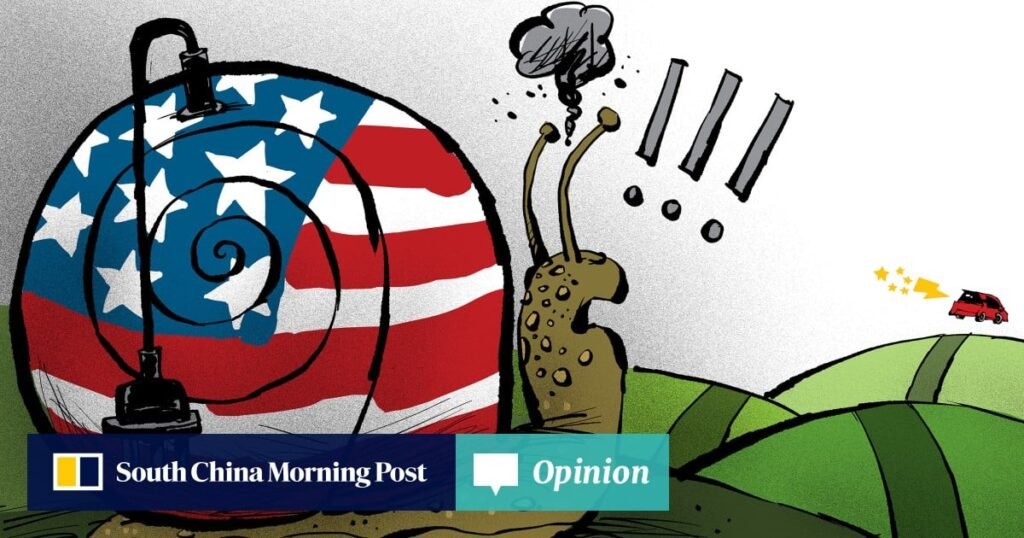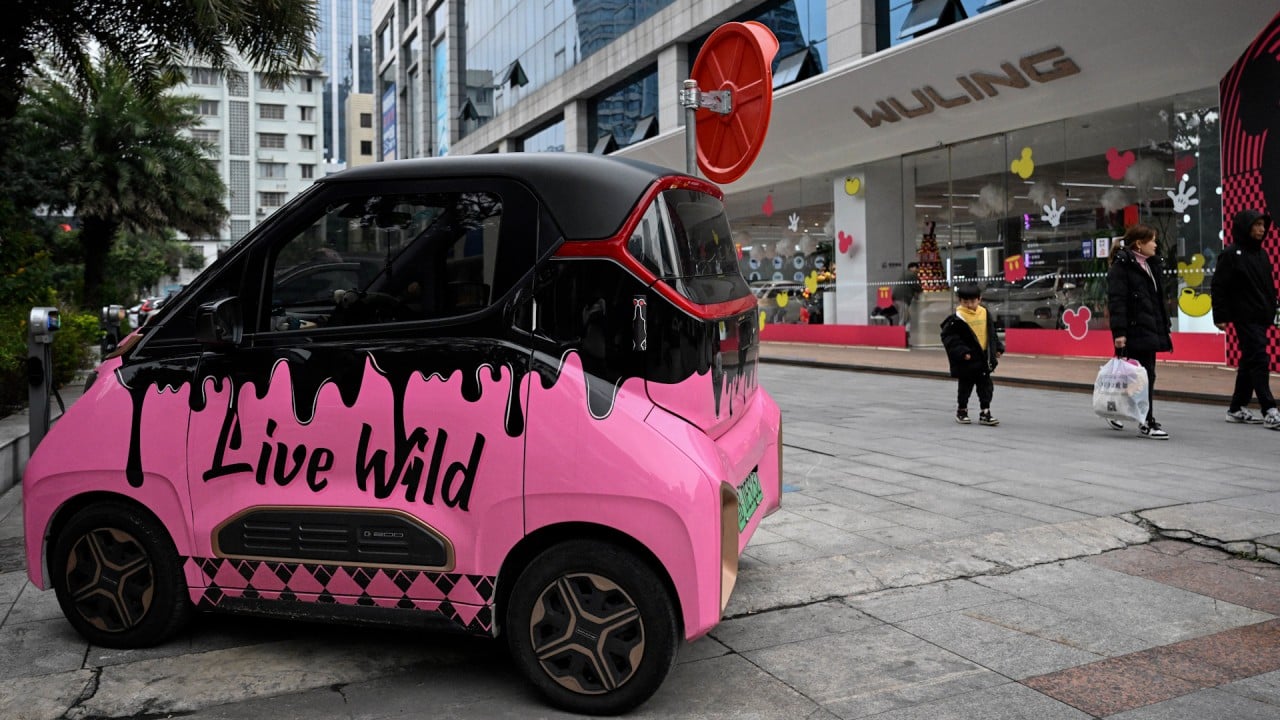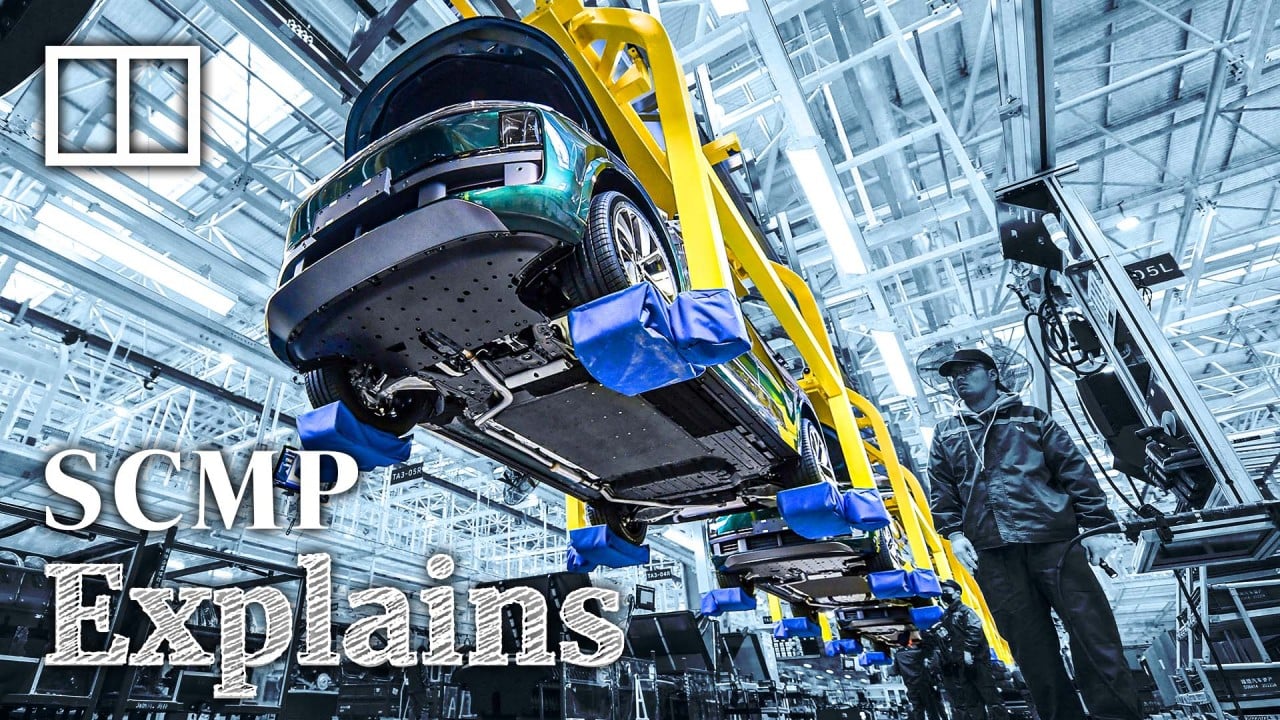In addition to “defensive” countermeasures against the US and EU, such as tariffs, Tai called for “more offensive” measures such as incentives “to correct market dynamics that do not play out in our favor.” What Tai’s comments actually reveal is America’s discomfort with Chinese innovation in EVs and other technology areas.
The Washington story misses the point in conflating overcapacity with broader problems in the EV market. Given that Chinese EVs are currently completely excluded from the US, it is not China’s overcapacity but high prices in the US market that is preventing the widespread adoption of EVs.
In contrast, the United States has been slow to realize even its EV infrastructure ambitions. President Joe Biden has pledged to build 500,000 EV charging stations by 2030 under the Infrastructure Act of 2021, with enough funding for 20,000 charging spots or 5,000 stations. Despite approval of $7.5 billion, only seven stations have been built in more than two years.
Let me be clear that China has nothing to do with this slow development. In the United States, Republican states and fossil fuel companies have historically opposed EV development, but the United Auto Workers, a key Democratic constituency that supports Biden’s re-election, also has serious concerns about the transition to EVs. There is.
It seems clear that Tai and Yellen’s comments were influenced by domestic political considerations, especially in an election year in the United States, rather than economic concerns.
If you listen to what U.S. officials say, the political divide is clear.
If you listen to what U.S. officials say, the political divide is clear.
Moreover, criticism that China is damaging other economies fails to recognize how it has had a beneficial impact on economies, particularly those in the Global South. China’s infrastructure projects have provided affordable solutions and fostered innovation in regions such as Latin America, Africa, Southeast Asia and the Middle East.
To address allegations of unfair competition, it is important to understand the multifaceted policies driving China’s EV success. The United States has invested a significant amount of money, including US$370 billion, into electric vehicles through the Inflation Control Act, but these efforts primarily benefit American automakers who use domestically produced parts.
Unlike the protectionist stance adopted by the United States, China’s approach prioritizes overall industry growth over narrow corporate or political interests. National policies are directed towards building an ecosystem to establish a complete EV supply chain in China.
The overcapacity narrative also overlooks China’s efficiency and work ethic, as exemplified by the rapid construction of Tesla’s Gigafactory in Shanghai. The dedication of local workers and alignment with institutional goals is key to China’s unique approach to economic development, but it often fails to be understood by U.S. policymakers.
Historically, in the 1980s, amidst competition in the automobile sector and widespread trade tensions between Japan and the United States, the United States was also concerned about “overcapacity.” The U.S. government’s application of the same label to China’s economic practices reflects the U.S. mentality toward competition with emerging economies and a narrow understanding of China’s domestic policies and global interactions. Only.
Making political statements will only exacerbate tensions and impede efforts to repair relations and foster healthy business relations between our countries. Rather than relying on divisive rhetoric, promoting cooperation and recognizing China’s contributions can pave the way for constructive dialogue and mutual understanding.
Dr. Xin Wang is Associate Professor of Chinese Studies, Director of Asian and African Languages, and Director of Asian Studies in the Department of Languages and Cultures at Baylor University, Texas, USA.



